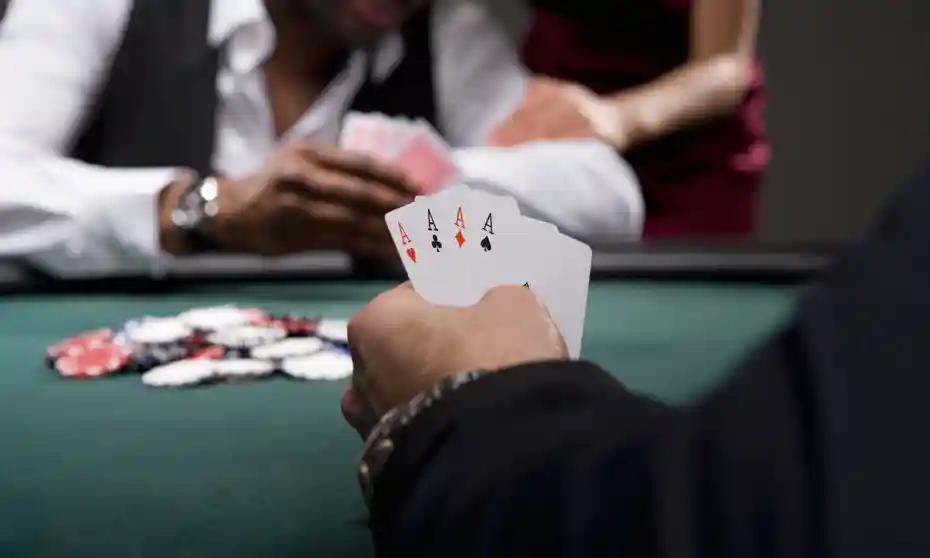Before placing a single bet, get clear on standard poker rules and gameplay flow. Understand the goal to make the strongest five-card hand possible from two-hole cards plus five community cards. Study the hand hierarchy from royal flush down to high card so you can interpret hand strength accurately. Brush up on blind betting, pre-flop/post-flop rounds and terms like “raise” and “fold.” No other tips matter if you don’t grasp the basics first.
For those just starting out in poker, sites like Bwin Casino offer an exciting entrance into classic gambling games. However, holding your own at the table requires learning key tips tailored for success as a beginner. Whether just playing casually or aspiring to competitive wins, these essential novice strategies set up the strategic play.

Know the Difference Between Cash Games and Tournaments
Cash games involve playing hands in rapid succession using specific buy-in amounts, while tournaments are scheduled events with a single buy-in where you play until knocked out. Buy-ins and play styles differ between the two formats, so decide which approach best suits your current skill, bankroll and schedule before joining a game.
Be Realistic About Win Rates for Beginners
In today’s poker scene filled with sophisticated software tools and seasoned pros, don’t expect overnight success. Building real skills takes significant time studying odds and scenarios to make optimal decisions. Expect to learn hard lessons and lose more often early on. Maintain realistic assumptions, stay humble and let experience improve play over time rather than expecting instant wins.
Study Proper Bankroll Management Techniques
To stretch your poker bankroll, apply proper bankroll management based on table stakes. As a beginner, bet only 1-2% of your total funds per session. Resist tilting bankroll strategy based on emotions or desperation after big wins or losses. Make decisions aligned to long-term profitability rather than reactionary impulses that could ruin your funds before you gain enough skill to recover.

Pay Attention to Table Positioning
Your position relative to the dealer button impacts available information to make strategic bets or timely folds. Study how to play from every seat, folding weak hands in early position facing multiple players still acting behind. Leverage late position to bluff or steal pots based on reads of other players already invested. Ignore the seat position as a novice and you ignore a major strategic advantage.
Observe Other Players Closely
Pay attention to opponents’ individual ticks that reveal hand strength or planned actions. Take notes on who bluffs often or only bets big hands so you can exploit leaks. If an aggressive opponent suddenly checks, they often hold weak cards unlikely to hit hoped-for community cards. Adapt your play as you learn opponents’ styles.
Have a Plan But Stay Agile
Approach each hand with a structured plan based on pot odds, hand matchups, position and reads. Yet be ready to quickly adapt that plan as community cards get revealed and betting rounds progress. What seems an optimal play pre-flop may become a losing play after the turn based on informed guesses of opponents’ hands. Rethink every street.

Leverage Available Learning Resources
Online poker offers unlimited free resources to build skills for little or no cost before risking real money. Study training sites, read winning strategy books, leverage odds calculator tools, watch Twitch streams of top players and download play money apps to safely gain experience reading situations and reacting appropriately. Leverage these tools fully before playing paid games.
Keep Emotions Out of Play Decisions
Emotional reactions like frustration, desperation or arrogance after big wins or losses can negatively sway next-play decisions from strict strategy. Keep cool under pressure. Set win limits and loss maximums before starting then stick to those rational guidelines no matter the emotional state swings during a long game. Put ego aside and play the odds.

Final Thoughts
Follow these tips as a beginner poker player to build a solid skill foundation for either casual home games or high-stakes competitive tournaments someday. Master fundamentals first, study bankroll discipline, leverage free learning tools and keep emotions detached from strategy. Applying these core tenets from day one accelerates progression on the path to becoming a winning player.





